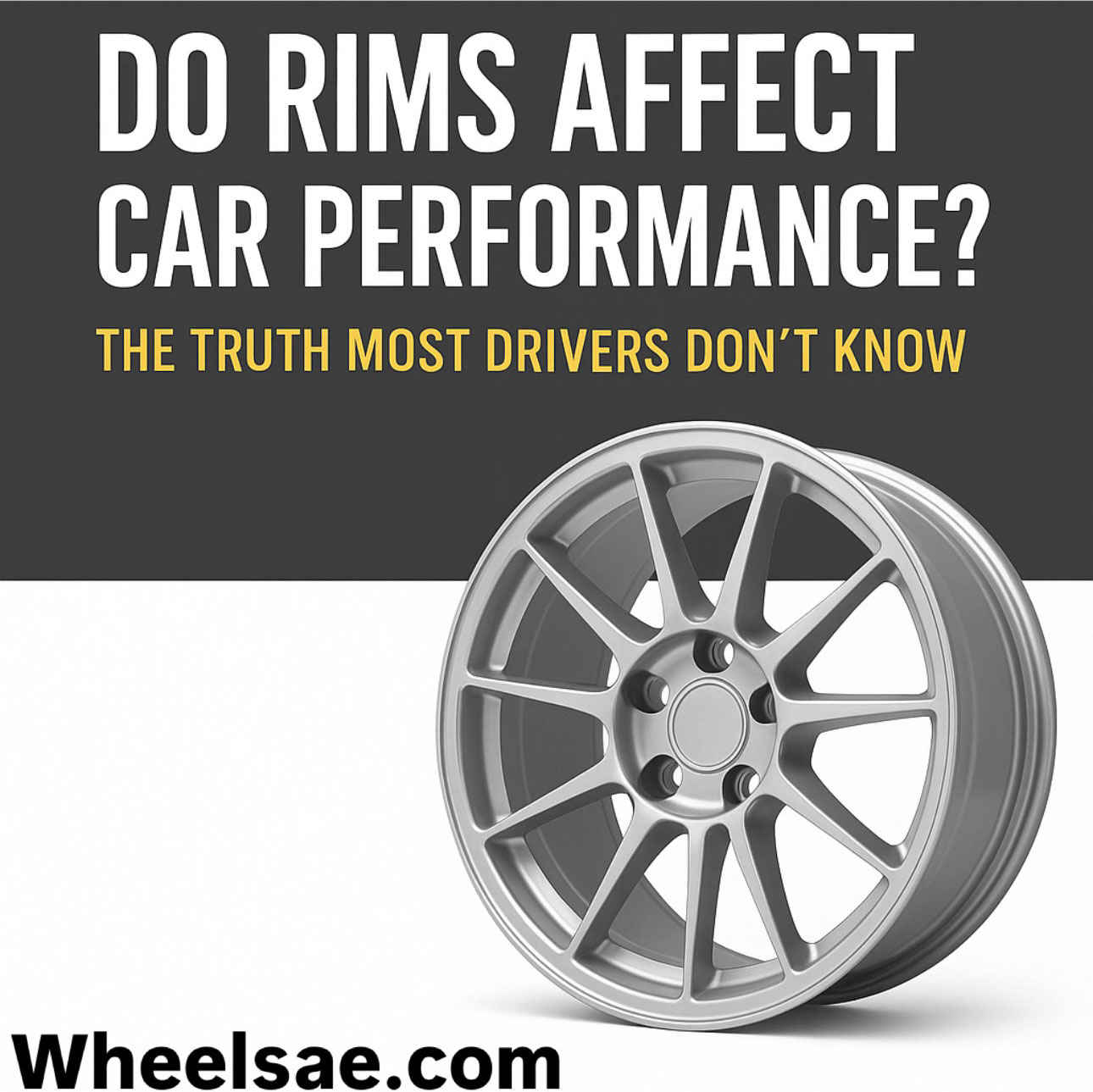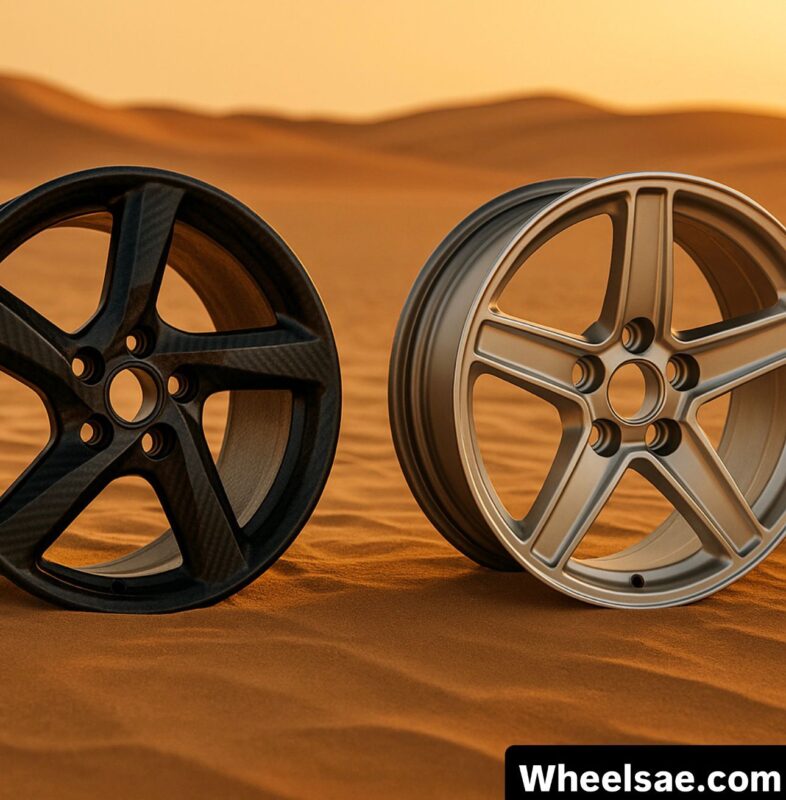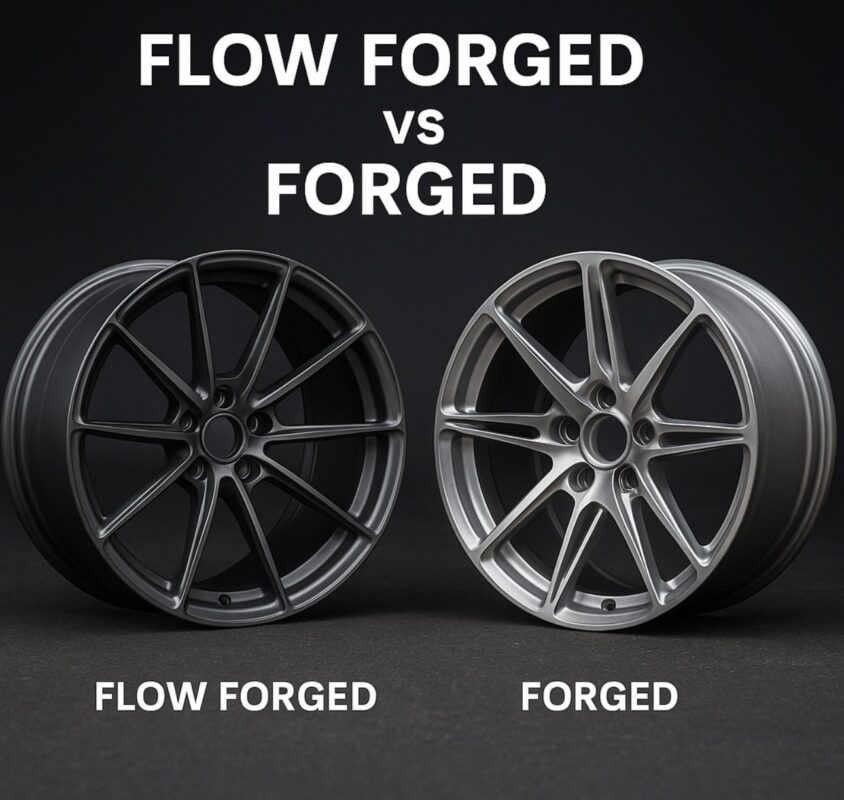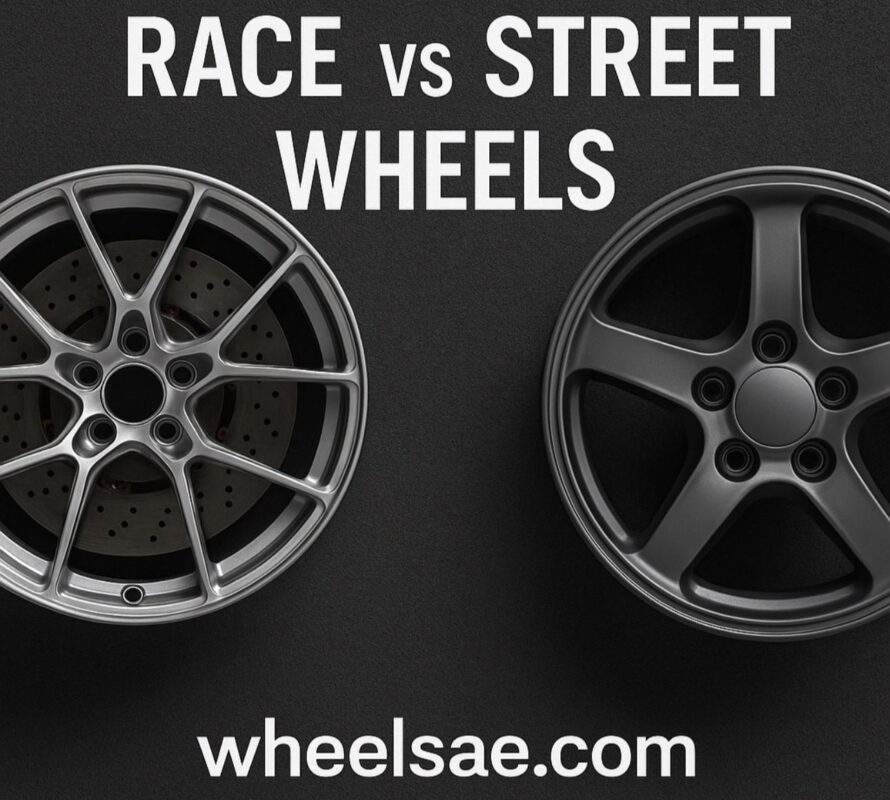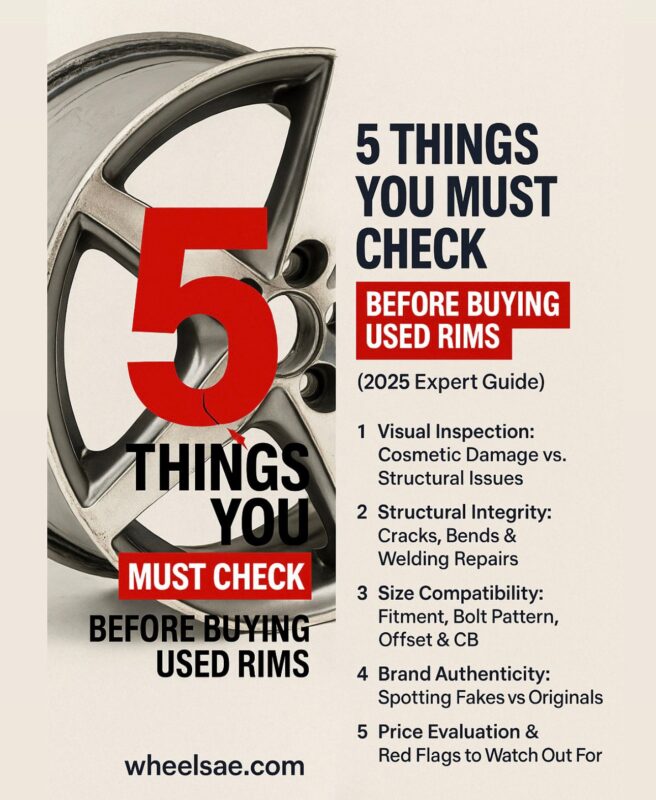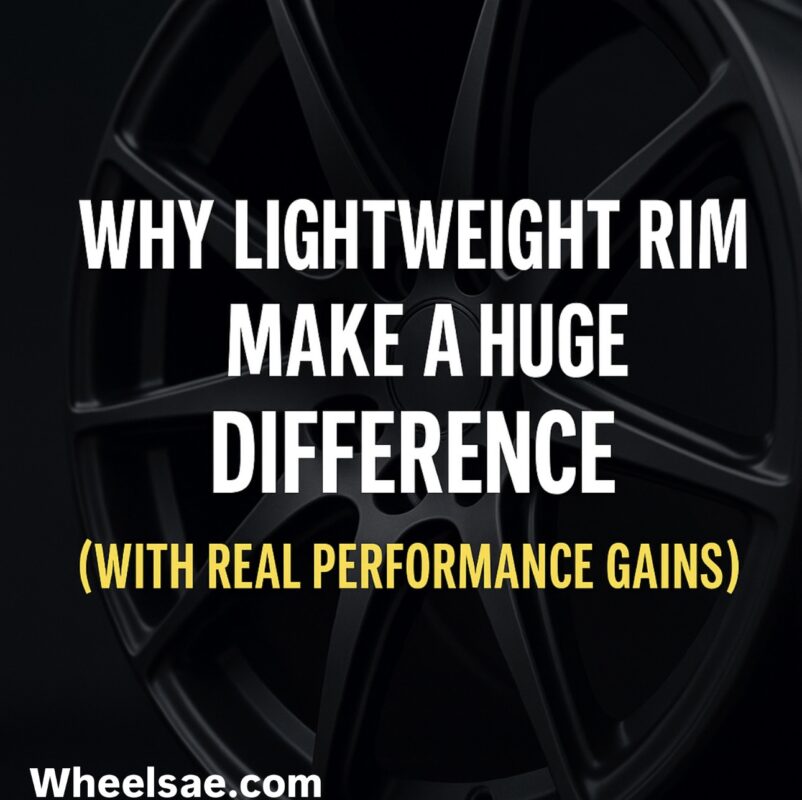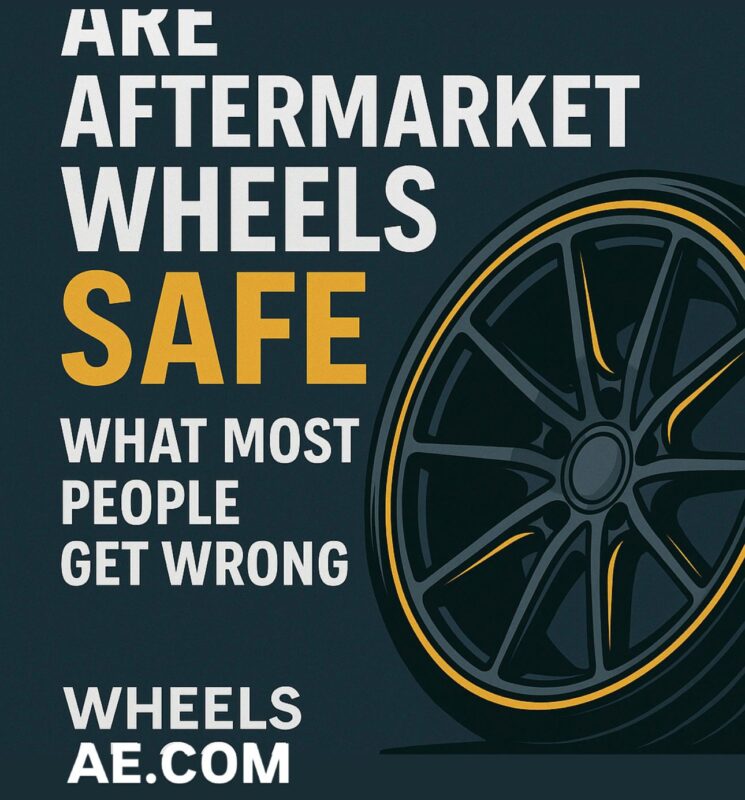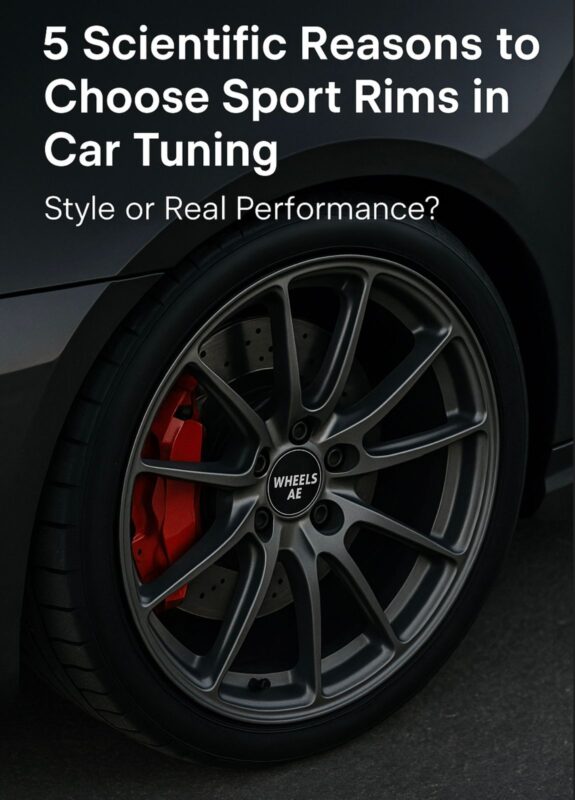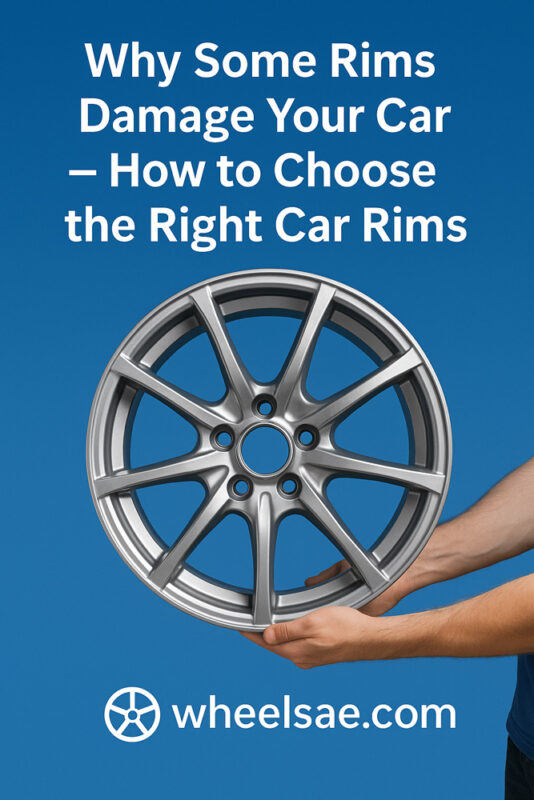Do Rims Affect Car Performance? The Truth Most Drivers Don’t Know
⸻
1. Introduction
When it comes to customizing your car, upgrading your rims is one of the first things many drivers consider. But a common question arises: Do rims affect car performance? The answer is yes — and the reasons why might surprise you. Rims don’t just impact how your vehicle looks; they also play a critical role in acceleration, braking, fuel economy, and handling.
⸻
2. Weight Matters: Why Rim Mass Affects Acceleration
Heavier rims increase your car’s unsprung weight, which directly affects how quickly your vehicle can accelerate. A heavier rim requires more energy to spin, slowing down your 0–100 km/h time.
• Lightweight rims (like forged aluminum) improve acceleration and agility.
• Heavier rims (especially steel) can dull throttle response and cause fatigue on long drives.
Key takeaway: Less weight = quicker launch.
⸻
3. Rim Size and Fuel Economy: Bigger Isn’t Always Better
A bigger rim usually means adding more weight. Even if the material is light, a larger diameter increases rolling resistance and decreases fuel efficiency.
• Larger rims often need wider tires, adding more drag.
• Smaller rims with thinner tires reduce rolling resistance and help with fuel savings.
Study Note: Switching from 16-inch to 20-inch rims can reduce fuel economy by 3–5%.
⸻
4. Handling and Cornering: How Rim Dimensions Play a Role
Rims affect the car’s center of gravity and how it reacts during sharp turns.
• Wider rims increase tire surface contact, which boosts grip in cornering.
• Lower profile tires (common on bigger rims) reduce sidewall flex, resulting in sharper steering.
However, overdoing it with oversized rims can result in:
• A harsher ride
• Damage to suspension
• Risk of bending rims on potholes
⸻
5. The Impact of Forged vs Cast Rims
Cast rims (gravity-cast or low-pressure) are more affordable but heavier and slightly weaker.
Forged rims, while expensive, are:
• Lighter
• Stronger
• More durable under high-stress driving
Forged wheels reduce rotational mass and improve performance — perfect for high-end cars or track usage.
⸻
6. Style vs Performance: What Should You Choose?
While some drivers prioritize the aesthetics of their wheels — flashy finishes, aggressive offsets, or deep lips — others aim for function.
A balance of both is ideal:
• Daily drivers should prioritize comfort and reliability over extreme looks.
• Enthusiasts or tuners might sacrifice some comfort for better grip, handling, and braking.
Tip: Match your wheel upgrade to your driving goals.
Do Rims Affect Car Performance?
⸻
7. Are Aftermarket Rims Worth It?
Yes — but only if you choose high-quality options. Cheap aftermarket rims often:
• Lack proper testing
• Are heavier than OEM wheels
• Can crack or bend under stress
Always check:
• Load ratings
• Certifications (JWL, VIA, TUV)
• Compatibility with your car’s bolt pattern and offset
Shop certified performance rims here
⸻
8. How to Choose the Right Rim for Your Driving Style
Here’s how to match your rim choice to your needs:
• City Driving: Lightweight, mid-size rims (17-18 inches) for comfort + economy
• Performance Driving: Forged aluminum, wide offset, aggressive fitment
• SUVs/Trucks: Heavy-duty wheels with higher load capacity
Don’t just go by looks — check offset, width, diameter, and whether your suspension can handle the setup.
Do Rims Affect Car Performance?
⸻
9. Frequently Asked Questions (FAQ)
Q: Do bigger rims make my car faster?
A: Not necessarily. Bigger rims often reduce acceleration due to added weight.
Q: Do rims affect fuel economy?
A: Yes. Heavier and larger rims usually lower your MPG/kilometers per liter.
Q: Are forged rims worth the money?
A: For serious drivers, absolutely. They improve handling, reduce weight, and last longer.
Q: Will changing rims void my warranty?
A: Not if installed properly and matched to manufacturer specs.
⸻
10. Final Thoughts
So, do rims affect car performance? 100% yes.
From acceleration and braking to fuel efficiency and comfort, the right rims can elevate or ruin your car’s driving experience. Whether you want style, speed, or savings — understanding how rims work helps you make a smarter investment.
⸻

